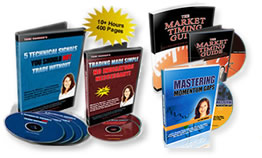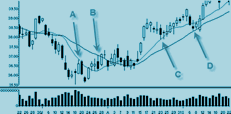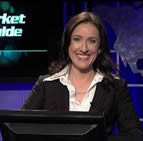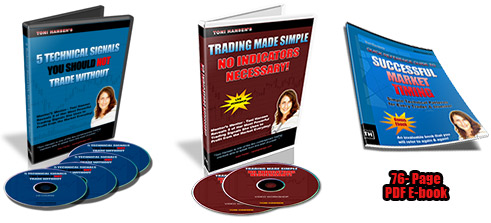MONEY MANAGEMENT
By Brandon Fredrickson
Here are some quotes from some great traders and investors:
- "I haven't met a rich technician" - Jim Rogers.
- "I always laugh at people who say "I've never met a rich technician" I love that! It's such an arrogant, nonsensical response. I used fundamentals for 9 years and got rich as a technician" - Mary Schwartz.
- "Diversify your investments" - John Templeton.
- "Don't bottom fish" - Peter Lynch.
- "Don't try to buy at the bottom or sell at the top" - Bernard Baruch
- "Maybe the trend is your friend for a few minutes in Chicago, but for the most part it is rarely a way to get rich" - Jim Rogers.
- "I believe the very best money is made at the market turns. Everyone says you get killed trying to pick tops and bottoms and you make all your money by playing the trend in the middle. Well for twelve years I have been missing the meat in the middle but I have made a lot of money at tops and bottoms." - Paul Tudor Jones.
- So here we have a group of guys who have collectively taken billions of dollars out of the market and they don't agree on a damn thing regarding how to make money. Not one. So what is a person to do? Is there anything they do agree on? Just one: "My basic advise is don't lose money" - Jim Rogers.
- "I'm more concerned about controlling the downside. Learn to take the losses. The most important thing about making money is not to let your losses get out of hand." - Marty Schwartz.
- "I'm always thinking about losing money as opposed to making money. Don't focus on making money, focus on protecting what you have" - Paul Tudor Jones.
- "Rule number one of investing is never lose money. Rule number two is never forget rule number 1" - Warren Buffet.
There really are a lot of ways to make money in the market. There are tons of seminars you can pay for that will tell you "How I made $1 katrillion dollars in the stock market" and its sister book "How I Double my Money Every Hour" is available in many different forms too for only $29.95. All of these will tell you some patterns that will work sometimes and won't others. Some might have you going long with Jimmy Rogers, while others will have you doing it with Bernard Baruch, but when it gets right down to it the most critical part of making money, is not losing much. Your always going to take stops and lose some. But you don't want to lose much, because you won't make a penny tomorrow if you go broke today.
One of the most common mistakes traders will make is that of "risking the whole wad". There is not a faster way to have bad things happen to you than to do this. Studies have been done that suggest the most you should risk on any one trade is 2%. And most pros will tell you that is way too much and they risk 1/4 % to 1% on each trade. The idea here is that no one trades is going to really effect you either way. You're not going to get rich, but your also not going to have to sell the house, as has happened to people.
One other benefit of small positions is that it allows you some freedom from worry. If you are risking a fairly small amount, your not going to get shaken out. You're also not going to find yourself in a position where you say "Sheesh, I can't lose this much money" and you turn bad trade into a terrible investment. So, if you are serious about this, if you want to make it long term you will practice sound money control. Before you ever enter a trade, the first thing you should ask yourself is how much am I risking here because, remember that while we are here to make money, we won't make any if we go broke.
The key to not going broke is to respect risk, take small positions that wont allow you to blow out. You must always keep in mind that in trading you are only playing the odds. You may have a setup that is correct 75% of the time but each trade is a random event. It doesn't take into account the last trade. If you have a 75% system, you can still be wrong 10 times in a row, and if you trade for any amount of time it will happen.
I once thought I had a foolproof way to make money at roulette. I would bet on black and red. I would sit at the table, and after the ball had landed on black or red 5 times in a row I would start to bet on the opposite color (so if it were 5 reds in a row I would start to bet on black) Then, if I was wrong, I would go ahead and double down, meaning that if my starting bet is $1, the next time I will be $2, then $4, then $8, then $16 etc.. Eventually I would win, and would come out $1 ahead. So I am 13 years old and really thinking I have the Holy Grail. If its so easy for a 13 year old to figure out, why is it that all the casinos are not out of business and we are all millionaires Simple. It does not work.
If we are flipping coins heads has a 50% chance of turning up on each roll, and so does tails. But each flip is independent of the last. The last coin toss has nothing to do with the one before it. It's a random event. There is a certain chance heads will occur on this roll, or that tails will. But which of them it is that comes up is a random occurrence. Each time you flip a coin it is one flip of a coin amongst the billions of times coins have been flipped. That's why you can roll 100 heads in a row if you do it long enough. That's why the first time I played roulette black came up 19 times in a row and I went home defeated.
Trading is the same. We have a certain percentage of our trades that will work out, and a certain percentage that will not. But your next trade has nothing to do with your last one. So even if you have the world's most accurate method, over time you will go broke if you don't practice good money management and risk control.
So now that we all understand why money management and risk control are very important let's cover exactly how to apply these rules to your trading. As I stated before, you shouldn't ever risk more than 2% of your account on one trade. But, as I also said, that's a bit much for most people and I'm in that group of most people. I like to keep my risk to around 1%. So let's focus our attention on risking 1% of your account on a trade. For the sake of this example let's just assume you have a very average account size, $25,000:
Say you are scanning tonight and come across XYZ which looks like it might be a great swingtrade buy if it trades at 15.5. The low of the prior day is 14.85. This means you will place your stop at 14.75, risking 3/4 of a point on this trade. Assuming a $25,000 trading account you can lose up to $250 per trade. You will use this number to determine how many shares you can buy, which in this case is up to, but not more than 333. Most people don't like to do odd lots, so you would round down to 300. Never round up because then you throw the risk control out the window.
Let me leave you with a few more quotes on risk control:
- "If you have an approach that makes money, then money management can make the difference between success and failure... ... I try to be conservative in my risk management. I want to make sure I'll be around to play tomorrow. Risk control is essential." - Monroe Trout
- "If you personalize losses, you can't trade." - Bruce Kovner
- "The best traders have no ego. You have to swallow your pride and get out of the losses." - Tom Baldwin
- "Never risk more than 1% of your total equity in any one trade. By risking 1%, I am indifferent to any individual trade. Keeping your risk small and constant is absolutely critical." Larry Hite.
While all of these guys have different methods for making money, each of them agrees that risk control is the single most important aspect of trading. These individuals are the best in the world and the only thing they agree on is risk control. Think about it...
Testimonials for Toni Hansen
"Dear Toni, I want to thank you for sharing the knowledge and insights you have gained over the years as a professional trader. I would recommend your CD and mentoring to anyone serious about consistently making money in the market, regardless of market conditions. As an experienced investor who has watched you firsthand, it is clear that you are a world class trader. Thanks for helping me become a better trader." - Guy Allen, Florida
“I owe you so much when it comes to my development as a trader. You have been a guiding light... I will always look back on you as a key element in that success. Thank you so very much...” - Greg
“Anyone who is trading needs your guidance for the education of trading. Your education of trading aspects is the GREATEST thing I have ever used. I learned more in two weeks from you, than from any books I read. THANKS AGAIN!” - Clarence E. Austin
“I'm done for the day and am very pleased...I have taken all your calls and follow them to the T...the NQ ones that is (trade QQQQ) and I play the gaps in the morning also (I'll take the 71% chance anytime)...I have turned myself around...First time in months...Thank-you! ”- Richard Widen
“I hope that everyone truly understands just how fundamentally sound and accurate your market trading strategies and concepts are. I have been trading for quite some time, and I just want you to know that I have been so very impressed with your substance based upon sound trading fundamentals and not "fluff" THANK YOU...” - Randall Morrow






